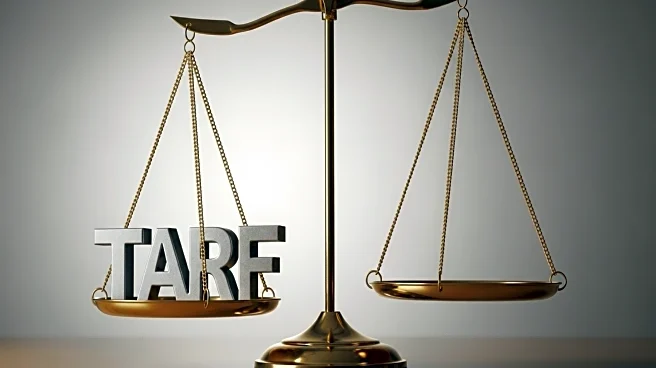What is the story about?
What's Happening?
The Trump administration's tariffs, imposed under the International Emergency Economic Powers Act (IEEPA), have been deemed illegal by the US Court of Appeals for the Federal Circuit in Washington, DC. The court ruled in a 7-4 decision that the statute does not authorize the imposition of tariffs, as it makes no mention of them. Despite this ruling, the administration plans to appeal to the Supreme Court, which is expected to uphold the tariffs. These tariffs have been controversial, affecting American importers who pass the extra costs onto consumers, leading to fewer goods being sold. The tariffs target countries individually, creating a complex global trade situation.
Why It's Important?
The legality of these tariffs is crucial as they have significant economic implications. If the Supreme Court upholds the tariffs, it would lock in additional costs for importers and consumers, potentially leading to pushback from various economic sectors and international trade partners. Conversely, if the tariffs are deemed illegal, it could dismantle the current tariff structure, affecting revenue sources intended to support tax cuts. This decision will impact international economic policy and trade negotiations, as tariffs are a key instrument in these discussions.
What's Next?
The Supreme Court's decision will be pivotal. If the court supports the administration, it could lead to widespread challenges in individual court actions against the tariffs. Alternatively, a ruling against the tariffs would require a restructuring of the administration's economic policy, affecting budgetary options and international trade relations. Industry lobbies are expected to exert pressure on the administration as the economic effects of the tariffs become more apparent.
Beyond the Headlines
The broader implications of this legal battle include the potential shift in U.S. trade policy and its alignment with free trade principles. The historical ineffectiveness of tariffs as a trade tool suggests that their continued use could hinder economic growth and international relations. The Supreme Court's decision could set a precedent for future trade policies and legal interpretations of economic powers.
















